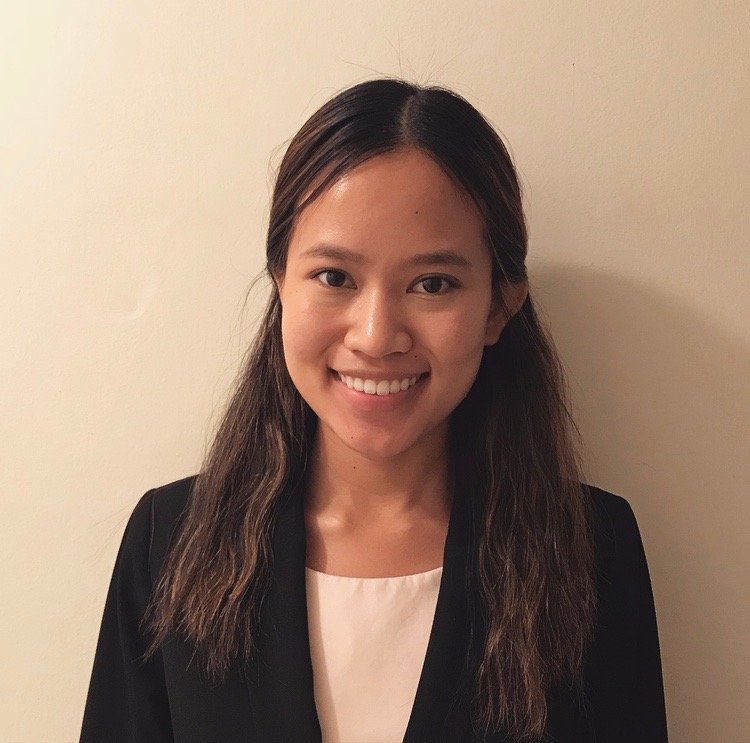
Minnie Che is a student at Harvard Law School.
Bumble, originally created as a dating app, launched a feature in 2017 that allows members to use the app for professional networking. Called Bumble Bizz, this feature just released a filter for a “women only” mode, where only female-identifying users can see each other’s profiles and match with one another for networking and recruiting. The reactions to this new service have been polarizing: some are praising its advocacy for the representation of women in “traditionally male-dominated industries,” while others are questioning its legality on the basis of discrimination against men.
On Bumble Bizz, users create a profile. Users can say whether they are looking for mentorship, networking, or a job. They can “swipe right” on other professionals and begin conversations. This new service introduces professional networking in a digital platform space typically reserved for social connection and caters to a young demographic of females. With more people meeting through apps, Bumble Bizz is capitalizing on that success by expanding the service to include mentors and jobs. While this may be necessary and beneficial to women, it is also vulnerable to legal challenge.
Potential violations under Title VII
Title VII of the Civil Rights Act of 1964 prohibits discrimination in employment on the basis of sex. 42 U.S.C. §2000e-2, §703(b). The Title applies both to employers and to employment agencies. To analyze if Bumble Bizz’s women-only mode violates Title VII, it is valuable to use Facebook’s microtargeting ads as a comparison. In September 2018, the ACLU filed a lawsuit against Facebook on behalf of female workers who claim that they were not shown employment opportunities because of their sex. Facebook is charged with creating a system that allows and encourages employers to limit preferences based on gender, even providing data on gender for advertising purposes. Facebook was acting as a recruiter to connect employers with potential employees. Three weeks ago, Facebook settled the class action for an undisclosed figure and has announced plans to make “sweeping changes” to their algorithm so that employers can no longer target job candidates based on protected classes.
Under Title VII, Bumble Bizz may be appropriately classified as an employment agency because it is helping to procure potential employees work opportunities for employers. If this classification turns out to be appropriate, it would be illegal for Bumble to “fail or refuse to refer for employment, or otherwise to discriminate against, any individual” because of sex. Just like Facebook is liable for preventing employment ads from reaching women, so might Bumble be liable for preventing men from accessing employment opportunities if employers were to use the women-only mode to recruit for jobs.
The digital space defined under Title II
In addition to Title VII, Title II of the Civil Rights Act of 1964 was passed to prevent discrimination by owners of public accommodations. These establishments include bars, restaurants, hotels, sports arenas, theaters, and other operations that affect commerce.
Lawsuits alleging that places of public accommodation have discriminated against men have been filed against women-only networking events. The California Unruh Civil Rights Act has been used to sue establishments for “Ladies Nights” at bars, female scholarships, and women business mixers. In 2013, Women on Course, a group that teaches women how to golf as a skill to succeed in business, was sued when it held a women-only golf clinic at a San Diego golf club. The two men, on behalf of the National Coalition for Men, responsible for the lawsuit filed a similar suit the following year against another female-run company for hosting a women entrepreneurs’ mixer. Both suits resulted in undisclosed settlements. In a related development, the New York Human Rights Commission found that the Wing, a working space for women, violated public accommodation laws.
The definition of public accommodation has expanded to cover new businesses in the gig economy like Uber. The New York City Human Rights Commission, for example, found that SheRides – an app designed to provide on-demand rides to women only – was a public accommodation “travel service” provider and could not exclude men from riding in their cars.
The difference between a service like SheRides and Bumble Bizz is the location where the discrimination takes place. Places of public accommodation are traditionally understood as physical locations, and the courts have not definitively addressed whether the Internet qualifies as a public accommodation under Title II. While the original legislative intent of Title II was to “eliminate discrimination in public accommodations affecting interstate commerce,” it is unclear how far the scope of the legislation will be interpreted in the context of a digital economy.
For example, in Noah v. AOL Time Warner Inc., the Eastern District of Virginia found that an online chat room was not an “establishment” because it did not have a connection to physical facilities, like a room to Airbnb or a car to Uber. Bumble Bizz users are exchanging messages via the app, making it more analogous to an online chat room than a service that exchanges services for money.
Implications and potential solutions
In 2019, women are still making $0.79 to every dollar for men. In a survey conducted by Pew Research Center, 50% of women in male-majority workplaces say sexual harassment is a problem, and women are three times as likely than men to say their sex has made it harder for them to succeed at work. With the #MeToo movement and more women feeling unsafe, women advocacy services provide safe spaces for women to connect with one another on their experiences. While Bumble Bizz gives young women a digital platform to foster professional networks they would not have had the opportunity to make otherwise, legal vulnerabilities threaten this goal.
How should we deal with these vulnerabilities? Perhaps it is time to adapt our affirmative action rules. In Canada, for example, special interest organizations are allowed to limit membership when “serving the interests of persons identified by a prohibited ground of discrimination.” If the tools needed to address gender inequality do not exist in our legal framework, it may be time to look outside of it.






Daily News & Commentary
Start your day with our roundup of the latest labor developments. See all
June 30
Antidiscrimination scholars question McDonnell Douglas, George Washington University Hospital bargained in bad faith, and NY regulators defend LPA dispensary law.
June 29
In today’s news and commentary, Trump v. CASA restricts nationwide injunctions, a preliminary injunction continues to stop DOL from shutting down Job Corps, and the minimum wage is set to rise in multiple cities and states. On Friday, the Supreme Court held in Trump v. CASA that universal injunctions “likely exceed the equitable authority that […]
June 27
Labor's role in Zohran Mamdani's victory; DHS funding amendment aims to expand guest worker programs; COSELL submission deadline rapidly approaching
June 26
A district judge issues a preliminary injunction blocking agencies from implementing Trump’s executive order eliminating collective bargaining for federal workers; workers organize for the reinstatement of two doctors who were put on administrative leave after union activity; and Lamont vetoes unemployment benefits for striking workers.
June 25
Some circuits show less deference to NLRB; 3d Cir. affirms return to broader concerted activity definition; changes to federal workforce excluded from One Big Beautiful Bill.
June 24
In today’s news and commentary, the DOL proposes new wage and hour rules, Ford warns of EV battery manufacturing trouble, and California reaches an agreement to delay an in-person work mandate for state employees. The Trump Administration’s Department of Labor has advanced a series of proposals to update federal wage and hour rules. First, the […]